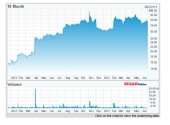 A little more than a year ago, a much-watched proxy fight came to an end when the shareholders of AOL voted to re-elect all of that company’s directors in the face of a proxy challenge from Starboard Value LP.
A little more than a year ago, a much-watched proxy fight came to an end when the shareholders of AOL voted to re-elect all of that company’s directors in the face of a proxy challenge from Starboard Value LP.
Starboard had sought three seats, received none, and this was understandably received in some quarters as a rebuke to Starboard. Business Insider headlined, “AOL Shareholders …, Vanquish Proxy Challengers.”
In retrospect, the simplest lesson for activist investors, that is, would-be proxy challengers, is perhaps just that you can’t win them all. You’re in a risky business (from that fact comes its profitability.)
The Problem with Patch
A more specific lesson, though, is that you can be right in the particulars and still be ‘vanquished.’ Starboard was, I submit, perfectly in the right to contend that Patch, the hyper-local news operation AOL acquired in 2009 and that sometimes seems like the pet project of AOL CEO Tim Armstrong, is a drag upon the value of the whole. Starboard’s presentation spent a lot of time on this point, “We do not believe Patch to be a viable business” it concluded bluntly.
Starboard quoted an unnamed senior Patch employee who said, “Unless Patch can come up with a new, performance-based product that can drive people into the advertisers’ stores, their business model isn’t going to work and it won’t succeed.”
Patch is an experiment in carrying “hyper-local news” over the internet. The business model requires ‘boots on the ground’ covering a lot of ground – local people covering the local stories. Starboard made a convincing case that AOL had consistently underestimated the costs of this. In the 2010 3d quarter conference call, after all, Armstrong said that AOL anticipated a “run rate expense … at approximately $30 million per quarter going into 2011.” In the 2010 4th quarter call he gave the same figure at $40 million. By the time of the 4th quarter’s call he said he didn’t want to talk about Patch-related numbers, “And the reason I’m not giving you transparency around Patch is because I don’t want to and I think we – but you’re going to have to trust me on this….”
Since the end of that proxy fight, though AOL has had good news on other fronts, there has been no notable good news regarding Patch. In the 2012 4th quarter call Armstrong was still opaque about the numbers, but he did acknowledge that Patch had not reached its revenue target, and was still unprofitable. He said the goal was to reach profitability by the fourth quarter of 2013.
He re-emphasized that point in May 2013, discussing this year’s 1Q results. He called the 4Qthe “finish line of profitability”.
It was not irrational of Starboard to ask its fellow investors in AOL to withhold or withdraw the sort of “trust” that Armstrong has requested.
Surely the turning point of the Starboard/AOL proxy contest was AOL’s success in selling much of its patent portfolio – something that raised a billion dollars in cash in the midst of this proxy fight (and that accounts for the vertical line in April 2012, in the above chart.) That created a billion distractions from Patch’s problems.
Lipton’s Victory Lap
This all comes to mind because Martin Lipton, dean of the incumbent boards’ defense bar, the fellow who invented the poison pill, more politely known as the shareholder rights’ plan, back in 1982, is still doing something of a victory lap about the outcome of the AOL proxy fight. He has recently offered those on the email list of his law firm, Wachtell Lipton, an outline of how they may “deal with hedge fund activism.”
Lipton concludes by pointing to a recent success of incumbents: “The 2012 defeat by AOL of an activist short-slate proxy solicitation supported by ISS shows that investors can be persuaded to not blindly follow the recommendations of ISS.”
Lipton has been using this illustration in this way since it happened. Almost exactly a year ago he wrote “Lessons from the AOL Proxy Fight” for the Harvard Law School Forum on Corporate Governance and Financial Regulation.
Meanwhile, though, it is pleasant to observe that Starboard has been undeterred by the AOL setback, and has done a detailed analysis of the Shuanghui/Smithfield Foods deal that shows their old verve and mojo.



